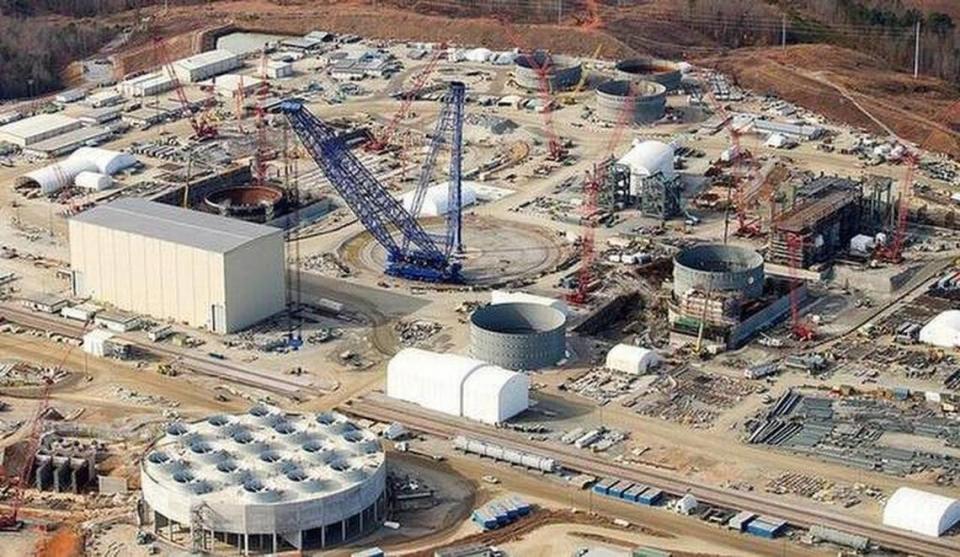Keeping the lights on in South Carolina shouldn’t leave the public in the dark | Opinion
How many of you have read all 80 pages of the massive energy bill, House Bill 5118, now being discussed in the S.C. Senate? Better question: How many of our 124 state representatives and 46 state senators have?
Me? I at least made it through all 34 of the whereases of the biggest bill at the State House this session (literally and figuratively) before deciding to call a few of its fans and foes to have them describe its key points and detail why they think it’s warranted or not.
Spoiler alert: It’s not.
The legislation is an overloaded but well-intentioned mess as anyone who remembers Christmas Eve 2022 knows. That’s the cold South Carolina night when energy demands and supply problems nearly led to widespread blackouts that would have ossified Rudolph, let alone families in need of light and warmth.
That night helped show that “the convergence of escalating population growth, record-breaking economic success, and the aging of existing energy infrastructure has created a critical juncture,” as House Bill 5118’s Whereas No. 8 states. But the bill’s underpinnings begin to collapse at the end of that whereas with the clause, “demanding immediate and decisive action to avert an impending energy crisis.”
One person’s need for immediate and decisive action is another person’s “Not so fast there.” Even if reasonable people agree to disagree on important issues like this, skeptics need to be heard out in a state where ratepayers are still paying the consequences of elected officials’ failure to fully vet the Base Load Review Act in 2006 — because they’re still paying for the disastrous $9 billion V.C. Summer project abandoned in 2017. Among other things, the new bill would reduce state regulators from seven to three, require them to fast-track projects with less oversight and weaken a solar industry that, along with battery storage, may be the state’s best solution to future energy needs.

The complex stew of so-called solutions in this ginormous energy bill seems to both create more problems than it would solve and fuel more uncertainty than we have now. In short, it greenlights a massive project on the banks of the Edisto River in Colleton County before a thorough accounting of its cost, environmental impacts and ratepayer ramifications while short-circuiting the regulatory process and torpedoing accountability that would ensure it is the best way to boost power and reliability. Compounding these issues, the Environmental Protection Agency released new rules Thursday for natural gas plants like the 2,000-megawatt plant that may be online in Colleton County by 2031. In 2032, such plants would be required to eliminate 90 percent of their carbon dioxide emissions in order to run more than 40 percent of the time. That means a refusal to install expensive carbon capture systems or take other steps could leave many South Carolina ratepayers paying for a problematic plant that only operates half the time.
Luckily, Senate Majority Leader Shane Massey, R-Edgefield, raised concerns on April 16, after the House of Representatives passed the bill without heeding concerns of environmentalists, ratepayer advocates and others urging caution.
The best approach now, with the May 9 end of the legislative session looming, is to shelve this bill and convene a group of stakeholders to explore the issues in greater detail over the summer and fall. Supporters of a plant that won’t be online for nearly a decade must admit that it won’t suffer from a relatively brief delay. That will allow us all to figure out how to boost power reliability and productivity in the quickest, cheapest and cleanest way possible for the state’s residents and businesses.
Every South Carolinian would benefit from an intellectually honest discussion that fully defines the problem, fully considers the consequences, does not feel rushed at all and balances rising energy needs, pressing environmental concerns and the right amount and form of regulatory oversight with an understanding of who might bear the cost.
That’s not asking too much. If the past is prologue, then it’s probably not asking enough.
Send emails, 200-word letters to the editor or 650-word guest essays to me at mhall@thestate.com and say hi on X at @bymatthewthall anytime.

